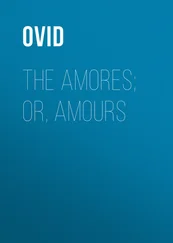
Ere thou risest, the mariner can clearly see the stars, and wandereth not at random over the wide seas. When thou dost appear, the traveller, for all his weariness, must quit his couch, and the soldier seize his fighting gear. Thou art the first to behold the husbandman shouldering his mattock; the first to call the lagging oxen to the yoke. 'Thou robbest children of their sleep and handest them over to the master for their tender fingers to suffer the blows of his cruel ferule. Thou bringest the surety to the court, where a single word may make or mar him. To advocate and to judge thou art alike unfriendly, for each is forced to rise to take up a case. ’Tis thou who, when a woman would fain taste the sweets of repose, callest her to spin the wool with unwearying hands. All this I could endure; but who would bear that young women should rise thus early in the morning, save the man that hath no mistress of his own? How often have I longed that night would not make way for thee, that the stricken stars would not flee before thee!
How often have I longed for the winds to shatter thy car, or for one of thy steeds to founder in the hollow of a cloud! Ah, cruel one, whither dost thou hasten? Since thou had'st a son whose skin was black, such was the colour of his mother's heart. Would that Tithonus were free to speak his mind about thee, the heavens I trow would ne'er have known a more lascivious woman. Thou fleest from thine aged spouse, because old age hath chilled him, and leavest the old man betimes to mount thy hateful car. But if in thine arms thou heldst thy favourite, Cephalus, thou wouldst cry, "Go slow, go slow, ye coursers of the Night!"
And though thy spouse be wasted with old age, wherefore should my love pay the penalty? Was it I that led thee to mate an old man? See how many hours of sleep the Moon gave to the youth she loved; and her beauty is no whit inferior to thine. The father of the gods himself, that he might not behold thy face so often, joined two nights in one, so as to let his passions have full play.
Thus did I upbraid her; be sure she heard me, for she blushed. Howbeit the day appeared no later than his wont.
Elegy 14. To His Mistress, Who, Contrary To His Counsel, Dyed Her Hair With Noxious Compositions, And Has Nearly Become Bald
DID I not say to thee, "Cease to dye thy hair?" And now thou hast no longer any hair to dye. Nevertheless, hadst thou not been stubborn, where was there anything more beautiful than thy hair? It came down to thy knees, so fine thou wast afraid to comb it. No finer is the tissue with which the dark-skinned Seres clothe themselves; no finer is the thread which, with her dainty legs, the spider, swaying from her lonely beam, draws out to weave her airy web. Howbeit its colour was not black as ebony, nor was it golden. ’Twas a mixture of the two. Such is the colour of the tall cedar in the cool valleys of Mount Ida, when its bark is stripped away.
So soft, so tractable it was that thou couldst bind it in countless different ways, without the smallest trouble. Never did the comb's tooth tear thy tresses; thy tire-woman was never fearful of a slapping. Many a time have I been present at my mistress's toilet and never did she seize the bodkin to prick her woman's arms. Sometimes of a morning, her hair still in disorder, she would lie, half turned over, on the purple bed. And even then, in her careless abandon, she was lovely, lovely with the loveliness of an o’er-wearied Bacchanal who has cast herself, heedless of her posture, on the green grass.
Then her tresses were soft as down. How often, alas, have I seen them put to the torture, compelled patiently to endure both iron and fire, to make them stay in little rounded curls. "’Tis a crime," I cried, "a crime to scorch that hair of thine; it falls beautifully of its own accord. Cruel one, have mercy on thine own head. Away with such violent treatment. This is not the sort of hair to scorch. Thy hair itself instructs the bodkin where to go."
Gone are those lovely tresses which Apollo, which Bacchus, might have envied; such tresses as Dione, coming naked from the foam, upheld with her dripping hands.
Why, since they pleased thee not, dost thou lament the ruin of thy tresses? Wherefore, stupid one, dost thou thrust aside so mournfully thy mirror? No longer doth it please thee, remembering what thou wast, to gaze therein.
Howbeit ’tis not to magic herbs culled by a jealous rival, nor to water drawn by some treacherous witch from Hæmonian springs, that their fall is due. ’Tis not the effect of some dire malady (the gods keep thee from that), no, nor a rival's jealous tongue, envious of their beauty. No, thine is the crime, and thine own the hand that wrought the loss thou mournest; thine own the hand that poured the poison on thy head. Now Germany will send you some slave-girl's hair; a vanquished nation shall furnish thy adornments. Alas, how oft, when thou shalt hear men praise the beauty of thy hair, wilt thou tell thyself with a blush, "’Tis purchased merchandise that makes me comely in their sight to-day; of some unknown Sygambrian girl my friends the praises sing. Yet I remember the day when that glory was my own."
Heavens, what have I said? See, she can scarce restrain her tears. She buries her face in her hands, and look how she is blushing. She steals a glance at one of her fallen tresses lying in her lap, a treasure, alas I not fitted for that place. Nay, come then, soothe thy heart and clear thy brow. The loss is not irreparable. Ere long with thine own hair, thou wilt be beauteous as of yore.
Elegy 15. The Poets Alone Are Immortal
WHEREFORE dost thou blame me, gnawing Envy, for consuming my days in slothfulness; wherefore callest thou my verses the employment of an idle mind? Why dost thou reproach me for not following in the footsteps of my forefathers, for not seeking, while vigorous youth permits, to crown my brows with the dusty laurels of war, for not studying the jargon of the law, or for not prostituting my words in a dingy court of justice? Mortal are the works whereof thou pratest; my aim is glory that shall not perish, so that in every time and in every place I may be celebrated throughout the world. Mæonides shall live so long as Tenedos and Ida shall endure, so long as Simois shall roll his hurrying waters to the sea. The Ascræan bard, too, shall live while the grape ripens on the vine, while the corn shall fall beneath the sickle's curving blade. The song of Battus shall be sung throughout the world, albeit his art, rather than his genius, is his title deed to fame. The tragic buskin of Sophocles shall never grow old. So long as the sun and the moon shall shine, Aratus will live on. So long as slaves are rogues, as fathers storm, as pimps deceive and strumpets wheedle, Menander will not die. Ennius, for all his artlessness, and Accius, with his lusty speech, possess a name that Time shall not lay low. When shall there dawn an age that shall know not Varro, or the first ship to sail the seas, or the Golden Fleece brought home by Æson's son?
When the world perisheth, then, and not till then, shall the works of the high-souled Lucretius perish too. Tityrus and the garnered crops, Æneas and his doughty deeds, will be read so long as Rome shall wield her sceptre o’er the conquered world. So long as Cupid wields his fires and bends his bow, thy numbers, skilled Tibullus, will remembered be. In the West and in the East the name of Gallus shall be known to fame, and because of Gallus, the name of Lycoris shall live on. What though devouring time wear down the flint, and blunt the share of the enduring plough, yet poetry shall never die. Let kings, then, and all their train of conquests, yield to poetry, to poetry let the happy shores of the golden Tagus give place. Let the vulgar herd set their hearts on dross if they will. For myself, let Apollo bestow on me cups overflowing with the waters of Castaly; let the myrtle that dreads the cold adorn my brow and let my verses ever be scanned by the eager lover. While we live we serve as food for Envy; when we are dead we rest within the aureole of the glory we have earned. So, when the funeral fires have consumed me, I shall live on, and the better part of me will have triumphed over death.
Читать дальше













